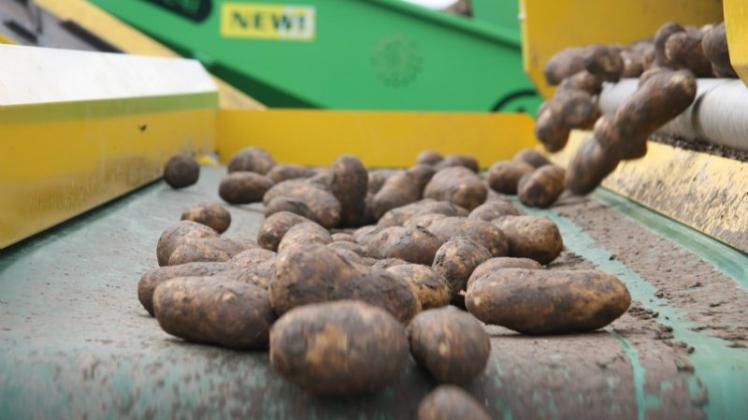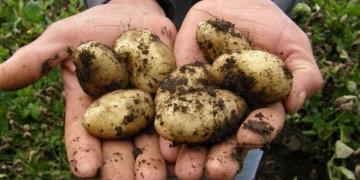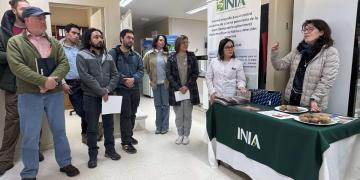Canada: Potato wart facts and figures
Potato wart is a soil-borne fungus, Synchytrium endobioticum. that can remain dormant in a field for more than 40 years.

Backgrounder
Although potato wart poses no threat to human health or food safety, it does have a financial impact for potato growers by reducing their yield and making potatoes unmarketable. While potato wart naturally spreads slowly within a field, it often spreads rapidly within and to other fields by the movement of soil in association with farm equipment, cultivation practices and transfer and planting of seed potato tubers from infected fields.
In Canada and many other countries, potato wart is a quarantine pest. The Canadian Food Inspection Agency (CFIA) is therefore required to put controls in place to help contain, control and prevent the spread of potato wart both domestically and internationally.
Potato wart is regulated under the Plant Protection Act (PPA). The PPA outlines requirements when a detection of potato wart is confirmed. For example, it may trigger land-use restrictions, movement controls, requirements for cleaning and disinfection of equipment, soil sampling and testing. The fungus is extremely persistent and the only efficient way to control the disease is to prevent the spread to new locations.
About potato wart in PEI
Seed potatoes from infected fields are the highest risk for spreading potato wart.
When left unmanaged, potato wart can cause field losses between 50% and 100%.
As of 2021, PEI has approximately 175 potato farms.
Since 2000, potato wart has been found in 36 fields across all three counties of PEI.
The CFIA’s current investigations began after the CFIA confirmed potato wart in two separate fields on two separate farms in October 2021. Since then, the CFIA has also confirmed related findings in February 2022, July 2022 and December 2022. These are the largest investigations since the fungus was first detected in PEI in 2000.
As of March 2023, the CFIA has analyzed over 35,000 soil samples as part of its current investigations into potato wart. Many more samples remain to be collected and analyzed.
The Government of Canada remains steadfast in its decision to implement the Ministerial Order and the PEI seed potato domestic movement requirements.
The decision to implement the Ministerial Order was necessary to help contain, control and prevent the spread of potato wart in a manner that protects plant life and Canada’s important agriculture sector.
The Ministerial Order restricts the domestic movement of potatoes, soil, and other high-risk things (i.e. root crops, nursery stock, sod, or bulbs) out of PEI.
Value of potatoes
According to Statistics Canada, potatoes are the fifth largest primary agriculture crop in Canada (after wheat, canola, soybean and corn). Potatoes contributed approximately $1.5 billion in farm cash receipts in 2021 and $2.6 billion in exports of potatoes and potato products in 2021/2022.
Potatoes make a significant contribution to the agricultural sector in some provinces; for example, in 2021, potatoes contributed over 44% of the total farm cash receipts in Prince Edward Island, and 17% of the total farm cash receipts in New Brunswick.
Manitoba and Alberta have higher total potato farm cash receipts than both Prince Edward Island and New Brunswick; however, potato farm cash receipts represent only 4% and 2%, respectively, of the total farm cash receipts for Manitoba and Alberta.
About PEI potato exports to the U.S.
PEI exports about $110 million worth of potatoes to the U.S. each year.
o Historically, that has included about $3 million in seed potatoes. The remaining over 95% of potato exports to the U.S. are for consumption (fresh and frozen/processed.
In November 2021, the United States Department of Agriculture’s Animal and Plant Health Inspection Service (APHIS) decided to no longer accept potatoes from PEI into the U.S.
Countries are responsible for setting their own individual import requirements.
The CFIA may only certify export shipments that meet the import requirements of the jurisdiction receiving the product.
U.S. imports of PEI potatoes for consumption resumed under certain conditions in April 2022, when APHIS introduced new requirements to reduce the risk of bringing in potato wart.
Currently, only field-grown seed potatoes from PEI may not be exported to the U.S. (as outlined in their Federal Order). The U.S. would need to change or repeal this federal order in order to resume importing seed potatoes from PEI.
Learn more about potato wart and the ongoing investigations in Prince Edward Island.
Fuente: https://www.canada.ca/en/food-inspection-agency/news/2023/04/potato-wart-facts-and-figures.html




